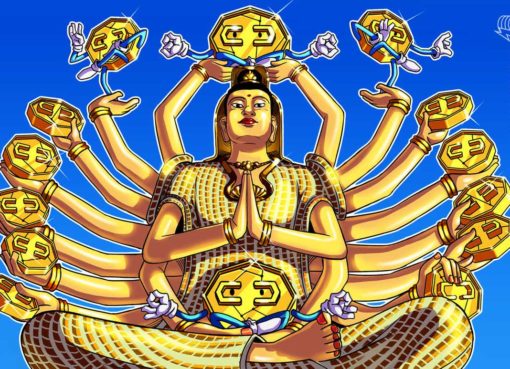More and more Ethereum blockchain operators have complied with sanctions from the OFAC, raising censorship concerns among decentralization proponents and network participants.
Toni Wahrstätter, an Ethereum researcher, noted that five of the six largest block builders on Ethereum’s blockchain actively censor certain transactions in line with the Treasury Department’s Office of Foreign Assets Control (OFAC) directives.
Most of these censored transactions originate from decentralized mixer Tornado Cash, according to Wahrstätter, a protocol blacklisted by the Treasury Department due to its use by bad actors, including the North Korean hacker organization Lazarus.
Wahrstätter’s research further pointed to censorship across three pivotal players that keep Ethereum’s network running – validators, relays, and block builders.
Censorship has been a front-boiler topic as blockchain technology advanced and crypto adoption spread worldwide. Decentralized network proponents frequently voice unease regarding centralized entities and the power they have over decentralized operations.
These concerns were raised by Wahrstätter, who noted that obstacles rooted in the concentration of power by a few network participants pose a threat to blockchain ecosystems.
“Censorship resistance is key for political neutrality in blockchains. No single entity should control 2/3 of a blockchain’s content. Decentralization is essential; centralization at any layer of the stack may harm the whole ecosystem,”
Toni Wahrstätter stated.
In a bid to combat rising censorship and centralization on Ethereum (ETH), Wahrstätter suggested two solutions.
The first is an inclusion list to aid censoring entities in handling OFAC-sanctioned transactions. This solution also recommends booting out non-compliant operators. Notably, this inclusion list was designed by Ethereum founder Vitalik Buterin and developer Mike Neuder in August 2023.
Secondly, the researcher proposed encrypted mempools that would make it impossible for entities to censor on-chain transactions based on their origin or content.
Buterin, a long-standing advocate for privacy and decentralization, remarked that censorship resistance is a bedrock for any blockchain, crypto.news previously reported.
The Ethereum creator has also criticized the U.S. for its approach to crypto regulations and how they affect networks like Solana (SOL).




